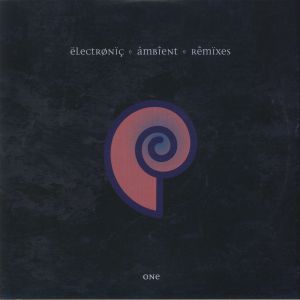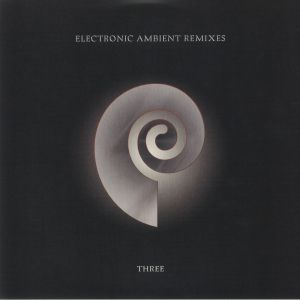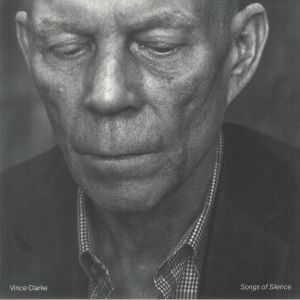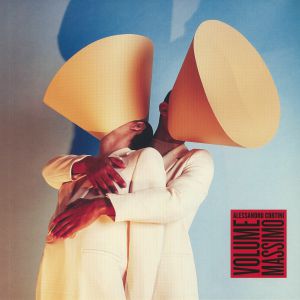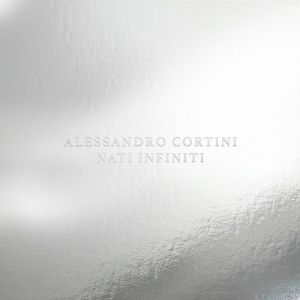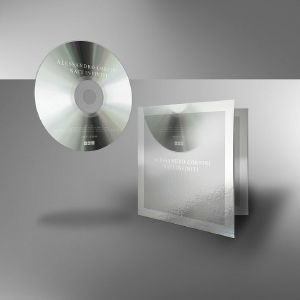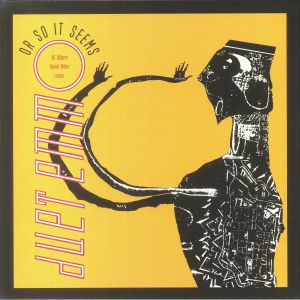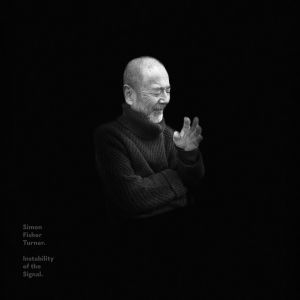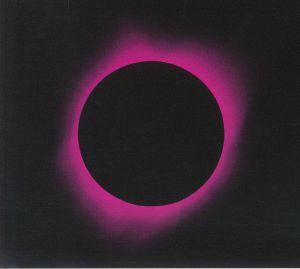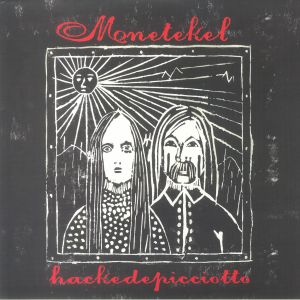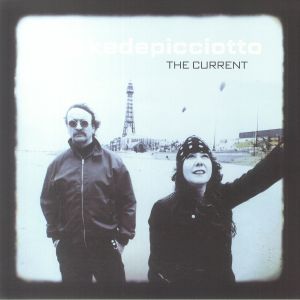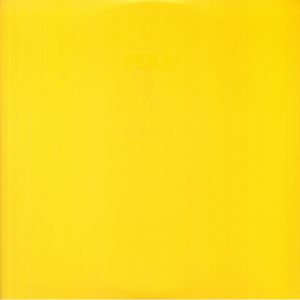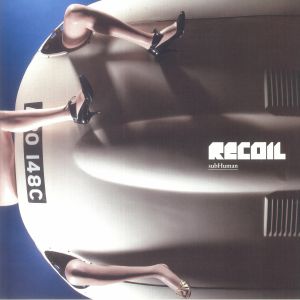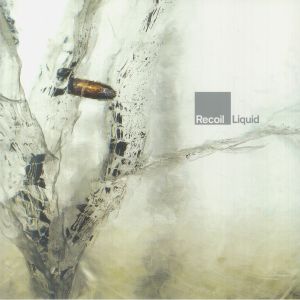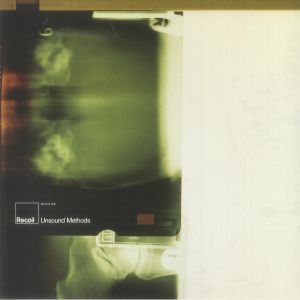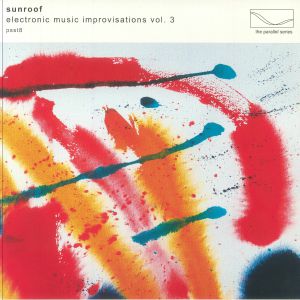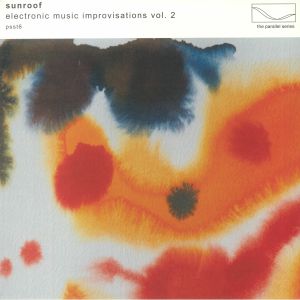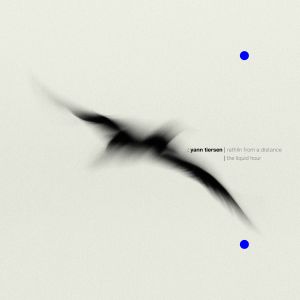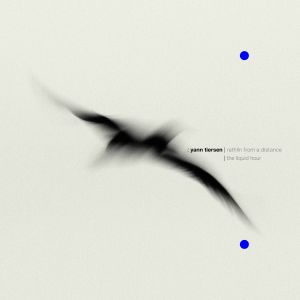Filter
Genre
在庫状況
音楽
レーベル
Featured
リリースタイトル
値段
Back catalogue: All genres
Juno's full catalogue of All genres
アルバム
in stock $34.32
Electronic Ambient Remixes One (limited transparent violet vinyl 2xLP + MP3 download code)
Cat: CCEAR 1LP. Rel: 03 Sep 21
Experimental/Electronic
Played by: Juno Recommends Experimental
in stock $22.43
Electronic Ambient Remixes Three (limited grey vinyl 2xLP (side 4 etched) + MP3 download code)
Cat: CCEAR 3LP. Rel: 03 Sep 21
Experimental/Electronic
Played by: Juno Recommends Experimental
in stock $24.92
Review: Vince Clarke (Erasure, Yazoo, Depeche Mode, The Assembly) presents his first ever solo album, Songs of Silence. As the album title suggests, it's a lyricless (though not vocal-free) instrumental album, and unlike anything you might've previously heard before from Clarke as an artisan of dynamic electropop. Rather, this LP brings with it a comparatively sober ambient electronic beauty, its unique characteristics lending it a category of its own. But two self-imposed oblique strategies underpinned its creation - first, that the sounds Clarke generated for the album would come solely from Eurorack (a modular synthesizer format introduced in the mid-90s), and second, that each track would be based around one note, maintaining a single key throughout.
… Read more in stock $43.74
Volume Massimo (limited transparent turquoise vinyl LP + MP3 download code)
Cat: STUMM 443. Rel: 27 Sep 19
Experimental/Electronic
Review: Trailed as a direct sequel to his previous solo album, 2017's "Avanti", "Volume Massimo" sees Nine Inch Nails member Alessandro Cortini offer up another immersive trip through droning guitar textures, repetitive synthesizer motifs, exotic sitar parts and fuzzy electronics. It's effectively a series of "maximal" instrumental soundscapes with sounds so large and layered they rise above the "meditative" tag pushed by Mute's PR team. This is no criticism, though, just a reflection that while contemplative at times, one of the most joyous things about the album is Cortini's ability to build thrilling walls of sound.
… Read morePlayed by: Joachim Spieth, Juno Recommends Experimental
in stock $24.92
Review: Italian musician, producer, composer, and instrument builder Alessandro Cortini unveils his latest release, NATI INFINITI, via Mute. Following up on 2021's Scuro Chiaro, NATI INFINITI is a forty-minute piece split into five movements, based on an immersive audio installation that Cortini originally created for the Sonar Lisboa festival in 2022, where it was presented across four floors of the Museu de Lisboa's Moagem. Marked by intense bouts of airy, tubular ambiences; and yet more sawwing tones counterposed with stark, angelic highs, giving rise to intensely beautiful arp sequenes, Cortini's latest is a real distillation of the sublime.
… Read morePlayed by: Juno Recommends Ambient/Drone
in stock $24.92
Played by: Juno Recommends Ambient/Drone
in stock $15.79
Or So It Seems (remastered) (limited gatefold white vinyl LP + 1-sided LP + MP3 download code)
Cat: LSTUMM 11. Rel: 18 Aug 22
Experimental/Electronic
Review: Graham Lewis, Bruce Gibert, Mute label founder and all round legend Daniel Miller came together to make this Duet Emmo record way, way back in 1981. Finishing the work a year later, it would be another 12 months before fans and unexpected listeners could access their accomplishment: a landmark experimental electronic release that also set benchmarks for minimal wave.
Perhaps what's so remarkable is the way in which Or So It Seems doesn't just play with, but offers an aural essay on timbre and resonance, depth and texture. There's not a huge amount happening on any of the nine tracks, but nevertheless they suck you in so far you'll find it difficult to remember which way to swim to resurface. Up or down, sideways or diagonal, whatever route it all winds up with the delightfully weird-but-fun 'Heart of Hearts'.
… Read morePerhaps what's so remarkable is the way in which Or So It Seems doesn't just play with, but offers an aural essay on timbre and resonance, depth and texture. There's not a huge amount happening on any of the nine tracks, but nevertheless they suck you in so far you'll find it difficult to remember which way to swim to resurface. Up or down, sideways or diagonal, whatever route it all winds up with the delightfully weird-but-fun 'Heart of Hearts'.
Played by: Juno Recommends Experimental
in stock $32.94
Review: Renowned composer Simon Fisher Turner's new album Instability of the Signal comes on limited edition black vinyl with extensive sleeve notes. It was produced with Francine Perry and across 13 tracks it delves into sound exploration inspired by Breda Beban, Hrvoje Horvatic, and poet Harold Pinter, whose works appear on the record. The artist integrates four elements: slivers, sounds, strings, and Singing where 'slivers" are brief audio snippets from Salford Electronics reimagined into track foundations. The album also features string arrangements by the Elysian Collective and overall the record reflects Fisher Turner's rich career as it blends experience with introspective soundscapes and personal expression.
… Read more in stock $24.92
Aurora (10th Anniversary Edition) (gatefold transparent red vinyl LP + poster + MP3 download code)
Cat: XSTUMM 368. Rel: 10 Oct 24
Experimental/Electronic
Flex
Nolan
The Teeth Behind The Kisses
Secant
Diphenyl Oxalate
Venter
No Sorrowing
Sola Fide
A Single Point Of Blinding Light
Review: Ben Frost's Aurora has inherited a rare, lucky crowning achievement: it's one of those "introductory" records - touted by new ambient music neophytes online - used to initiate rookies into the so-called true ordinances of real taste. Divesting ourselves of this knowledge for a hot second, we prefer to draw attention to the fact that Aurora has reached another milestone: its tenth anniversary. Frost, the renowned Iceland-based Australian composer, crafted a tense yet glacial record back in 2014: Aurora's implicit takeaway seems to be the that to explore a polar land isn't a far cry from the act of exploring another planet; little context is grafted onto the sheer, real cold sound of the record, though the references are tentative if obvious: 'Nolan' and 'No Sorrowing' allude to "epic" cinema imagism - the lost causes and "no, go on without me" moments native to the seat-edge nailbiter soundtracks of survival flicks - whilst the utter dystonia of 'Diphenyl oxalate' lends a chemical influence, recalling a harrowing, cliff-edge SOS scenario aided only by the dim glimmer of glowsticks and flares, brandished by hazmat-suited heroes, lost, stranded far from the research station. Frost now shares a limited edition red vinyl edition here, limited to just 300 copies and including alternative artwork as well as an exclusive download of his blistering 2014 live performance of the record, at Berlin's Berghain.
… Read more in stock $21.02
Review: While Ben Frost's work has long been marked out by deft-touch dark ambient, experimental instincts and clandestine aural textures, he's always thrown in surprise excursions and drawn on musical inspirations that other like-minded producers would fear to embrace. This latter characteristic comes to the fore on Scope Neglect, his first solo set for six years. Remarkably, it utilises the moodiness, weight and ten-ton guitar licks of metal - played by Car Bombs guitarist Greg Kubacki and bass-slinger Liam Andrews of My Disco fame - as a starting point. Frost naturally puts these through the sonic wringer, combining them with his own skittish, IDM-influenced beats, dark ambient soundscapes and razor-sharp electronics. The results are unusual, impressive and emphatically enjoyable, sitting somewhere between timeless electronica, Nine Inch Nails and experimental metal.
… Read more in stock $11.91
Played by: Juno Recommends Experimental
in stock $17.71
Played by: Juno Recommends Experimental
in stock $15.79
Played by: Juno Records Staff Picks
in stock $24.92
2 (reissue) (2xLP + MP3 download code in spot-varnished sleeve)
Cat: POLE 2LP. Rel: 28 Aug 20
Ambient/Drone
Played by: Logic1000
in stock $28.24
in stock $27.41
SubHuman (reissue) (limited gatefold transparent blue vinyl 2xLP + MP3 download code)
Cat: LSTUMM 279. Rel: 10 Nov 22
Broken Beat/Nu Jazz/Nu Soul
Review: Depeche Mode member Alan Wilder is Recoil. This musical project found him landing on Mute with a great series of albums including the likes of Liquid and Unsound Methods as well as his sixth LP, subHuman. This one dates back to 2006 and came after a 6-year break from recording. It is dark and broody electronic music "which sets the listener a challenge to analyse what makes us human and subHuman." It's a collaboration with bluesman Joe Richardson who served up guitars as well as harmonica and eerie vocals. Themes in the record include murder, death, and religion while guest singer Carla Trevaskis did a fine job of serving up ethereal sound on 'Allelujah'.
… Read more in stock $32.66
Review: Mute began reissuing some classic albums from Recoil last year and already they have vanished so this is another pressing of one of their best - from former Depeche Mode member Alan Wilder. 2000's Liquid is thought to be one of his best works as he delves into dark and involving electronic worlds with its hypnotic and deeply charged charm. Its moods - desire, fury, and violence - are paired with self-reflection that encourages you to go deep inside yourself while listening. There are haunting and ghoulish moments of intensity like 'Strange Hours' next to more soothing trip-hop cuts like 'Breath Control'.
… Read more in stock $18.82
in stock $18.82
Electronic Music Improvisations Vol 3 (limited orange vinyl LP)
Cat: PSST 8. Rel: 28 Nov 24
Experimental/Electronic
Review: Daniel Miller and Gareth Jones head back into the studio and fire up the Eurorack modular synth for a third adventure into the great unknown of sounds and noises seemingly once heard in another dimension before being brought back to planet Earth with the hope of recreating whatever the rumbling or bleeping was. Electronic Music Improvisations Vol.3 is exactly that, building on the self-imposed musical parameters that guided the preceding two parts. Deep, otherworldly, vast, and unique, the beauty of Miller and Jones' Sunroof project is how it's also the opposite of all those words. Sparse, pared back, familiar, very much born of manmade machines, since these endeavours began we've crossed through the looking glass into a world that often feels like it's spinning out of human control, not least with the advent of music entirely made by AI. Here's proof people can still take complete charge of their creative process.
… Read more in stock $21.03
Electronic Music Improvisations Vol 2 (limited white vinyl LP + MP3 download code)
Cat: PSST 6. Rel: 16 Feb 23
Experimental/Electronic
Played by: Juno Recommends Experimental
in stock $15.79
Rathlin From A Distance/The Liquid Hour (2xLP with obi-strip (indie exclusive))
Cat: STUMM 514. Rel: 03 Apr 25
Modern Classical
Review: Breton artist Yann Tiersen's new album is divided into two distinct parts, each with its own identity. Rathlin from a Distance features eight introspective piano pieces named after locations Tiersen visited during his 2023 sailing tour, such as the Fastnet Lighthouse and the Faroe Islands. The music evokes introspection and tranquillity throughout and creates a meditative atmosphere that makes a lasting and cathartic impact. In contrast, The Liquid Hour is an expansive blend of electronic and psychedelic rhythms born from Tiersen's reflections on political and social change during his time at sea. The section's haunting melodies and Emilie Quinquis' vocals make a great counter to part one.
… Read more in stock $34.32
Rathlin From A Distance/The Liquid Hour (2xCD with obi-strip)
Cat: CDSTUMM 514. Rel: 27 Mar 25
Modern Classical
in stock $14.39

 USD
USD







